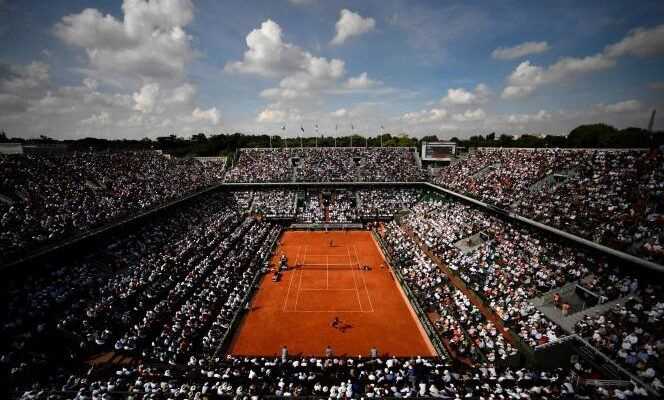The Roland-Garros tournament must sell 118,611 tickets to allow spectators to attend the competition, against around 500,000 before the Covid-19 epidemic, the French Tennis Federation announced on Wednesday May 12 ( FFT). Last year, the pandemic forced organizers to accept only 1,000 spectators a day.
After a week of qualifications, from May 24, the Parisian tournament will welcome up to 5,388 daily spectators from May 30 to June 8 inclusive, then up to 13,146 for the day of June 9 thanks to the government authorization of raise the limit of the gauge to 65%. Thereafter, until June 13, the number of courts used will decrease with the number of matches remaining to be played and the total number of spectators will automatically decrease.
In addition, the FFT has not received an exemption from the curfew and no spectator will therefore be admitted for the night sessions, organized for the first time as such, during these French tennis internationals. Only the last one scheduled, which will start at 8 p.m. on June 9, will be able to accommodate 5,000 people, the government having moved the curfew to 11 p.m. from that date.
Mandatory health pass from June 9
Regarding attendance, the twelve hectares of the Roland-Garros stadium were divided into six establishments open to the public: the Philippe-Chatrier court, the Suzanne-Lenglen court, the Simonne-Mathieu court, the courts 2 to 5, courts 6 to 9 and courts 10 to 14.
There will however be “Free movement” possible between these sites, said the president of the FFT, Gilles Moretton. “There will be checks” so that the gauges on each court are never exceeded, however, he added.
A health pass should be requested at the entrance to the site from June 9, as the government wants for gatherings of more than 1,000 people. The deputies adopted the principle, Tuesday evening in the National Assembly, during the examination of the bill on the management of exit from the health crisis.
The spectators will thus have to present “Either the result of a negative PCR or antigen test of less than 48 hours, or a vaccination certificate”, explained Mme Oudéa-Castéra, general manager of the FFT, before mentioning “ a certificate of remission, ie the production of a positive test result of more than two weeks and less than six months’.
The exact modalities of this last document have not yet been decided: the European Union recommends a positive test of more than ten days and less than six months for this “certificate of recovery”, when the general direction of health in France recommends a test lasting more than two weeks and less than two months.
The health ministry has not yet commented on the issue. Parliamentary discussions in the Senate followed by the publication of a decree by the Prime Minister should provide details in the coming weeks.
